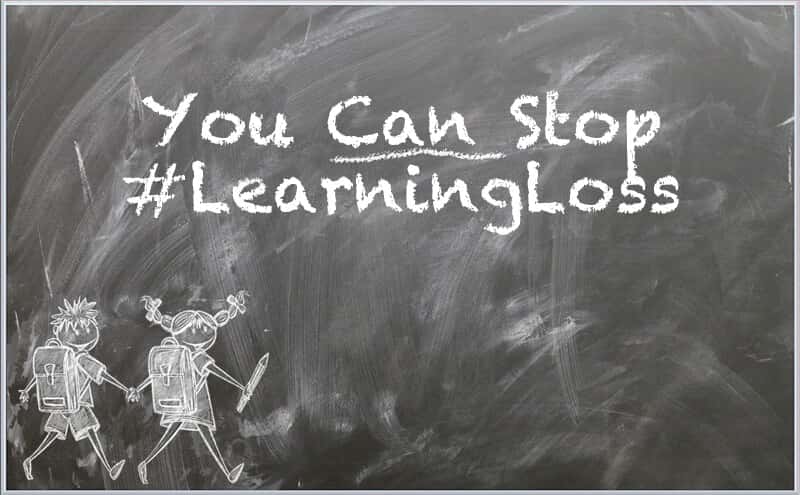Undoing Learning Loss
Written by Sandie Barrie Blackley, Speech-Language Pathologist
Published on May 21, 2021

If you have a child, you may have seen the terms #learningloss and #summerslide trending in your social media feeds. The idea is quite simple: when students are away from the structure and practice of their normal classes, their academic progress stops and even reverses leading to a loss of both knowledge and skill sets.
Learning Loss and COVID-19
Researchers have been tracking the phenomenon for years and school closures due to COVID-19 have increased interest. Jennifer McCombs, a senior policy researcher for the RAND Corporation, has studied the topic extensively, with a special focus on students performing below grade level. Of the summer slide, she says, “it’s very clear that academic progress is slowing because kids are not spending engaged time in academic content.”
Learning Loss and Summer Breaks
For struggling readers—whether or not they have been diagnosed with dyslexia or another learning disability—summer often means a backslide in hard-earned skills. This “summer setback” causes students to begin the school year with less competence than they had shown in the prior spring.
Undoing Learning Loss
In Harvard EdCast: Learning Loss and the Coronavirus, Jennifer McCombs says, “We also know that once you’ve learned something, it’s easier to relearn it, right? You learn it faster. If I’ve taught you something and then you kind of forget how to do it, if I reintroduce it, you’re able to pick it up a little bit more easily. We’re not starting from square one on these things.”
This idea of re-learning fits nicely with David Share’s self-teaching hypothesis. As we have mentioned before, effective learning for struggling readers begins with recognizing and understanding the elements of language—graphemes and phonemes—rather than with guesswork or the rote memorization of words. This process is known as decoding and it provides the student with elements that can be mixed and matched to help them recognize new words.
Share’s hypothesis proposes that once a person has been taught to decode (i.e., they can recognize the sound patterns in letters and letter combinations), they continue to learn by reading. As they apply their carefully taught decoding skills, they expand their understanding of language with everything they read. Their decoding ability allows them to self-teach, a process that Share suggests may continue throughout their reading life.
Learning Loss Can be Avoided
While a few students may be able to teach themselves to decode, science demonstrates that most—and especially those with language-learning difficulties—cannot. The Lexercise Structured Literacy Curriculum is focused on giving students the decoding skills and practice they need to become life-long confident readers. The Lexercise Summer JOLT Reading Advancement Program turns summer vacation into a fun and convenient boost in reading skills to create stronger readers and, very importantly, to eliminate learning loss.
[jetpack_subscription_form]
Improve Your Child’s Reading
Learn more about Lexercise today.
Schedule a FREE
15-minute consultation


